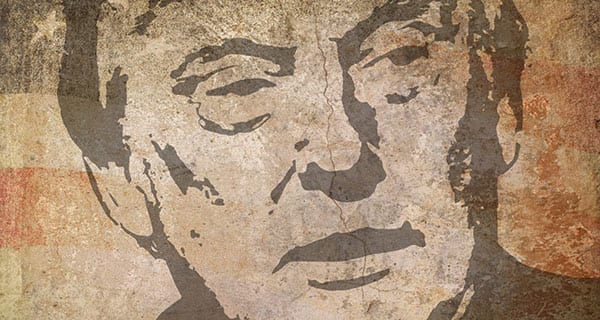 When Donald Trump recently speculated about revisiting the U.S.’s unconditional security guarantee to its allies, the roof fell in. It was as if he was singlehandedly broaching a forbidden topic, and destabilizing the entire globe while he was at it.
When Donald Trump recently speculated about revisiting the U.S.’s unconditional security guarantee to its allies, the roof fell in. It was as if he was singlehandedly broaching a forbidden topic, and destabilizing the entire globe while he was at it.
In talking about this, it’s important to put aside one’s feelings about Trump himself.
Yes, he’s crudely demagogic and it’s likely that he hasn’t bothered to think through the implications of many of the positions he espouses. That, however, only speaks to his personal unsuitability for the job of president. It doesn’t necessarily say anything about the validity of the issues he has alighted on.
Responding to a question about whether he’d come to the aid of attacked NATO allies, Trump made it conditional on whether the allies in question had met “their obligations.” In other words, if a NATO member – say Estonia or Latvia – didn’t pull its weight to the level Trump deemed appropriate, it’d be on its own when Vladimir Putin came to call.
In taking the position he did, Trump was upending NATO’s “an attack on one is an attack on all” mantra. He was also signalling a distinct pullback from the concept of Pax Americana – the idea that the U.S.’s position as “leader of the free world” necessitates that it undertake a global policeman role.
It’s not difficult to understand why many people, particularly non-Americans, would find Trump’s ruminations deeply unsettling. Whatever the limitations of the past 70 years, we’ve at least been spared the kind of conflagration that engulfed the world between 1939 and 1945. NATO in particular, and Pax Americana in general, have had something to do with that.
Still, let’s be frank about NATO.
While its roster of 28 members is impressive, the thing that gives it bottom line credibility is the U.S. Put bluntly, it’s not the fear of going up against the Dutch, the Belgians or the Canadians that would give pause to a seriously determined Putin.
But if the case for maintaining current arrangements is so historically persuasive, why would anyone think about radically changing them? You might – note I only said “might” – do so if you were a U.S. citizen.
Although the U.S. enthusiastically assumed its leadership role, being global policeman has entailed costs in both blood and treasure. There have been various wars in places like Korea, Vietnam and the Middle East.
You can, of course, argue that at least some of these wars were foolish and unnecessary. Consequently, they don’t have any legitimate bearing on the viability of Pax Americana.
But isn’t that argument just a trifle disingenuous?
In terms of the expectations you set for yourself, assuming the role of global policeman creates its own dynamic. As problems explode around the world, you feel the need to “do something.” And your own internal political process ratchets up the pressure.
So, in the end, you find yourself militarily involved in places where you really have no direct national interest at stake. It’s just something that happens.
Then there’s the question of whether foreign policy should be based on explicit acknowledgement of reality. Should a country make it absolutely clear what it will and won’t do? Or should it leave people to guess?
No matter what NATO’s Article 5 says, does anyone seriously believe that Barack Obama’s U.S. would go to war with Russia in order to protect the Baltics? Or would Justin Trudeau’s Canada? And if there’s no serious prospect of that happening, is it smart to pretend otherwise?
Actually, a plausible case can be made that pretence is just what the situation requires. Cynical though it may seem, bluff has always been part of the diplomatic process. We may know that we wouldn’t fight for the Baltics, but Putin can’t be sure and thus won’t take the risk.
Mind you, strategies of bluff and pretence can get out of hand. If all the participants had really understood the dynamics of their alliances and promises, perhaps the First World War might never have happened.
Chances are that Donald Trump will depart the political stage in November. But even after he’s gone, some of the issues he’s championed will linger.
Troy Media columnist Pat Murphy casts a history buff’s eye at the goings-on in our world. Never cynical – well perhaps a little bit.
The views, opinions and positions expressed by columnists and contributors are the author’s alone. They do not inherently or expressly reflect the views, opinions and/or positions of our publication.
